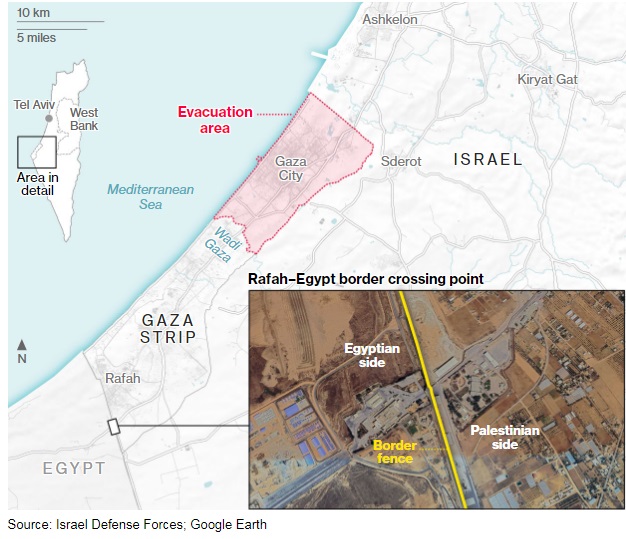The Defense Blog, citing reports from journalist Doron Kadosh, affiliated with the Israeli radio network operated by the Israel Defense Forces – Army Radio (also known as Galei Tzahal or Galatz), reports on the deployment of submarines in the Middle East. Israel's decision was reportedly dictated by rising tensions with Iran and the presence of Palestinian Hezbollah in Lebanon.
Kadosh was to relay that submarines had been deployed at combat positions along the coast of the Mediterranean Sea in the Middle East in response to escalating threats from Iran and Hezbollah. The submarines are a vital element of Israel's combat capabilities. The Defence Blog emphasizes that their deployment in the Middle East "is a clear signal of this country's commitment to maintaining a strong deterrent stance".
The Israeli Navy currently operates five modern Dolphin I/II class submarines. All were designed and constructed by the German company Howaldtswerke-Deutsche Werft (HDW). Work is also underway on another Dolphin II class vessel.
Israel acquired the first three Dolphin I class ships in 1999-2000. The boats were produced by the German company Howaldtswerke-Deutsche Werft (HDW). According to the Nuclear Threat Initiative (NTI) service, two boats were donated to Israel by Germany, and the costs of the third unit were shared between countries. Another two ships were ordered in 2006. These are Dolphin II class units.
NTI draws attention to the fact that there are still speculations about the arming of Israel's submarines. They suggest that the units were redesigned to be able to carry missiles armed with nuclear warheads, thereby giving the state the ability to carry out so-called second strike, or retaliatory strike. It is described as a response to a nuclear attack conducted by an enemy using nuclear weapons.
NTI emphasizes that the German government has refused to comment on the modification of the Dolphin class submarines supplied to Israel and the possibility of arming them with missiles with nuclear warheads.

Brussels is stepping up its efforts to conclude a broad economic support agreement with Egypt, as the EU grows increasingly nervous about the Israel-Hamas war potentially escalating into a regional conflict and a new refugee crisis erupting, writes ‘The Financial Times’.
Israel is widely believed to be preparing for a land offensive on Gaza, home to 2.3mn Palestinians, after two weeks of bombardment in retaliation for the October 7 attack by Hamas militants. Egypt borders Gaza and controls the only non-Israeli crossing into the strip, and has accused Israel of trying to force Palestinians into its territory.
The situation has sparked a flurry of discussions on a proposed EU-Egypt agreement, officials told the FT, including talks this weekend in Cairo with senior European Commission representatives.
Egypt is a regional linchpin and already works closely with Brussels on migration management. But it is overburdened with debt and has been in the grip of a severe foreign currency crunch even before the war erupted on its eastern borders, raising concerns for its medium-term stability and its ability to manage its 100mn population.
The commission’s work on the agreement has been given informal approval by member state representatives. It will not specifically link EU cash to Egypt’s commitment to prevent any onward migration to Europe or a possible influx of Palestinians, people involved in the discussions said.
Egyptian authorities have been adamant not to open their border to Palestinians fleeing from Gaza and president Abdel Fattah el-Sisi has repeatedly rejected the idea of Israel attempting to displace the strip’s 2.3mn inhabitants to the Sinai peninsula. Sisi and Jordan’s King Abdullah II on Saturday harshly condemned Israel’s bombardments of Gaza, which have killed over 4,700 people, according to Palestinian health authorities, amid mounting concerns the Israel-Hamas war will trigger a broader regional conflict.
Instead of focusing only on migration, the EU agreement with Egypt will seek to provide financial support to projects aimed at creating employment and helping the country’s energy transition, the people said, to help prop up its economy and indirectly avoid mass migration to Europe. Detailed information on the agreement, including the overall cost and how it would be funded, have not been
When asked about the agreement, a spokesperson for the commission pointed to a comment by vice-president Margaritis Schinas, who last week told reporters: “We need to engage actively with Egypt to make sure that Egypt gets all the backing they merit for their very important role in the region as a transit country.”
Leaders and senior officials from Europe, the Middle East and Africa met in Cairo this weekend to discuss the Israel-Hamas conflict and the deteriorating humanitarian situation in the Gaza Strip, which is controlled by the Palestinian militant faction. Schinas represented the commission and the Egypt-EU agreement was discussed on the sidelines, one person briefed on the matter said.
read more in our Telegram-channel https://t.me/The_International_Affairs

 11:16 24.10.2023 •
11:16 24.10.2023 •























